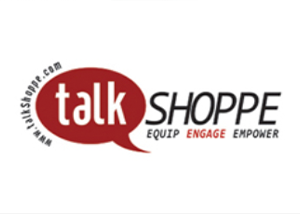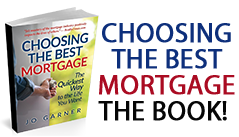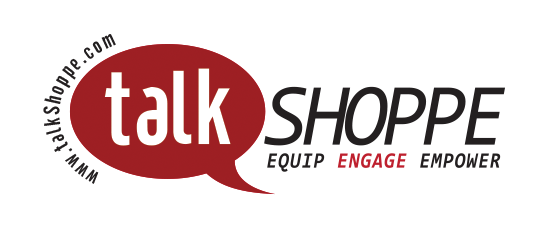Good Morning Memphis! Are you ready to make some money? Are you ready to build some wealth? You are on the Real Estate Mortgage Shoppe with me, Jo Garner, Mortgage Loan Officer with Evolve Bank and Trust. In the studio with us today we have Richard Scarbrough, Buyer & Broker with First National Realty and Kevin Perk, investor and blogger for SmarterLandlording.com . Today our topic is “What Is A Real Estate Deal?”
Before we jump into building your wealth, let’s cover some important news for home mortgage financing.
The big news is that FHA is almost doubling their upfront insurance fee as of April 1st , 2012. What is FHA and what does it do? The Federal Housing Administration (FHA) insures mortgages on single-family and multi-family homes. They do not loan money, but they are the largest insurer of mortgages in the world, offering borrowers a chance to purchase with very little cash investment. FHA is the most popular home loan program for people looking for flexibility in calculating household income and payment ratios. FHA is also the most lenient on requirements for funds to close.
As of April 1st FHA will raise the upfront mortgage insurance from 1% to 1.75%. For example if you were getting an FHA mortgage for $100,000. Today you would have $1,000 added to your loan amount to cover the upfront mortgage insurance payment, so you would be borrowing $101,000. But in less than a month, you will be adding $1,750 to your $100K loan. That is an extra $750 added to your loan if you are borrowing $100K .
FHA is also going up on the monthly mortgage insurance. Today you would pay a monthly mortgage insurance on a $100,000 loan of $96/mo. But as of April 1st you will be paying 104/mo. That is an extra $8/mo if you are borrowing $100K -even more if you are borrowing more.
Word to the Wise: No matter which mortgage company or bank you are working with– Get your FHA purchase loan or refinance loan closed BEFORE April 1st . With the mortgage companies working at past capacity right now, the name of the game is get your loan application today and now later than Monday and be ready to supply all of the supporting documents within 48 hours. You can call me and my very capable assistant Susan Belew right now on our direct line (901) 482 0354. That direct number again is (901) 482 0354.
The computerized underwriting system and pricing should roll out March 17 for the HARP 2B program to help underwater borrowers–that would be the refinance program to help homeowners who are underwater on their mortgage–in other words, they owe more on the house than the current value of their home. There are restrictions for the program. Your loan must have been backed by Fannie Mae and Freddie Mac since before May 31, 2009 and you need to have been making your payments on time. Don’t know whether your meet the criteria? My assistant Susan Belew and I will be glad to do the research for you. Call us at (901) 482 0354.
There is a newer refinance plan that the President mentioned on his State of the Union address but is not officially on the table yet. This is the refinance program to refinance underwater borrowers that have mortgages NOT backed by Fannie and Freddie–and this program was supposed to be dead on arrival but Republican Senator Richard Shelby of Alabama wants to hear more about his program to help the housing market. Do YOU want to hear more? If you want this program, you need to talk to YOUR senator and let them know how you feel and what you think about it.
The number one question for callers at my office this week ” What is the mortgage rate?”
Actually there is not A RATE. Your mortgage rate is determined by your loan amount, loan type, loan-to-value and credit score. But, Wednesday and Thursday this week the mortgage rates spiked up because investors are getting nervous about what is going to happen in Europe and what is going to happen with our employment numbers. Yesterday the good news is the mortgage rates slid back down a notch
Today we are back at a comfortable 3.875% to 4.25% on the 30 yr fixed rate loans and low to mid 3’s on the 15 year. The big winner this week is the 5-1 ARM coming in at a cool 2.625% to 3.25%. The 5-1 Arm is a fixed rate for the first 5 years and then converts to an adjustable rate with safety caps. If you are not going to be in the loan for more than 5 years OR if you are paying down a very large chunk of the balance within the first 5 years, then let’s talk about how the 5-1 ARM could work for you.
Are you ready to make some money? Are you ready to build some wealth? We have Richard Scarbrough, buyer and broker with First National Realty and Kevin Perk, investor and blogger for smarterlandlording.com Our topic today? “What Is A Real Estate Deal?”
Want to talk with us about this or any other real estate topic on your mind? Call us at (901) 535-9732 . That is 901 535-WREC.
Richard and Kevin, What IS a real estate deal?…..
Define a real estate deal – You have to work backwards from what you want to do with a property, retail, wholesale or buy and hold. A deal is not $185,000 for a “$200,000” house. You paid retail.
Retail Deal – Have to know the current market value for the area and work backwards from there. If the retail price is $200,000, then subtract
Repairs – For example $30,000 (Figure your repairs then add 50% more)
10% for the cost of the sale- Commissions, holding costs, etc. $20,000
10% profit or $10,000 which ever is greater – Here it is $20,000
So a deal for this $200,000 house would be $130,000
Be sure to know your retail market. Be sure to know how long it might sit,
What will you do if it does not sell in 3 months? 6 months? What is backup plan?
Wholesale Deal – Figure your ARV – After Repaired Vale – using the latest comps and use the foreclosure comps because that is your competition. Whole to Retail and Landlords
For Retail, maximum allowable offer is about 60% of the ARV, less any necessary repairs. So a $100,000 ARV house is a good wholesale deal at $60,000. If there is $10,000 of repairs needed, then the deal is had at $50,000.
A quick method to use for landlord deals is to multiply the monthly rent by 100 and divide by 2. So if rent is $800 per month. Multiply times 100 = $80,000/2 = $40,000 That is a decent wholesale price for a landlord customer.
Be sure to add your wholesale profit in. $5,000 or $10,000 depending on the deal.
Buy and Hold Deal – Cash flow is the name of the game. What is cash flow? Cashflow is what is left over in your monthly rent collections after all monthly expenses are paid. It is not a deal if you are breaking even. Do not bet on appreciation – You may be writing checks every month rather than collecting them.
What are monthly expenses? Principal, Interest, Taxes, Insurance, Maintenance, Vacancy Credit, Management Expense – After all that is paid, you should have between $150 and $200 per month cash flow left over – Profit for a deal to be good.
Figure the cost of your money P and I, taxes, insurance, 10% gross rents for maintenance, 10% gross rents for vacancy credit and place a little aside for that roof you will need to replace one day. These expenses will determine the price you can pay.
MIG – Is this Thursday on March 8th at 6 PM. We are featuring Buck Clark, developer of Clark Tower – Taking about real estate development, some of his past projects and what he sees in the real estate future. This is local expert knowledge on local real estate trends. Also offering an all day class on Wholesaling on Saturday the 10th, Be at MIG this Thursday to hear all the details.
Jo’ answers to on-air questions:
1. Evolve Bank offers financing for buying investment property as long as the borrower does not own over 10 financed properties. What are some of the loan programs you can offer a real estate investor?
Jo to discuss the difference between financing for an investor with LESS than 4 financed properties and an investor with more than 4 financed properties and not more than 10
2. What is the biggest difference between financing for a real estate investor buying a rental property as compared to someone buying a house to live in as a primary residence?
Jo to discuss the fact that rates are unusually low right now for investors so the rate would be only less than 1/8th higher than the terms offered on a primary residence. The biggest difference is the investor must pay down between 20% of the price of the house and 30%. The person buying to occupy the home would only be required to pay around 3% and usually not more than 10%.
Also, for investors, the seller is only allowed to pay 2% of the home price toward the buyer’s closing costs. Whereas the seller can pay 3 to 6% of the price toward the buyers closing cost if the buyer is purchasing a home where he intends to live.
3. Where can investors get money to use for down payment
Real Estate Tip of the Day: Richard and Kevin.
Or If you or someone you know is trying to buy a house or refinance one using FHA financing, they need to get in HIGH GEAR to get this done before April 1st. With processing and underwriting backed up with a record number of borrowers waiting in line, you need to be comfortably completed with your loan in the next 2 weeks to be assured of a closing before April 1st.
Real estate home loans, financing and mortgage solutions is the mission of the Real Estate Mortgage Shoppe radio show.





